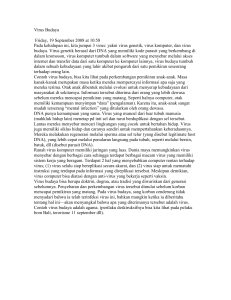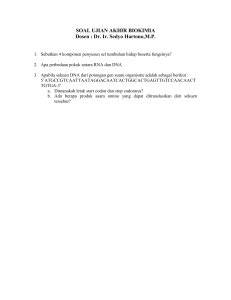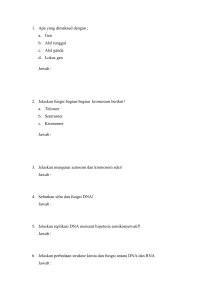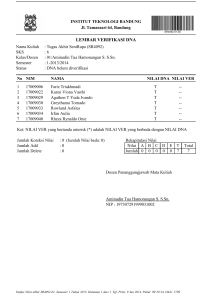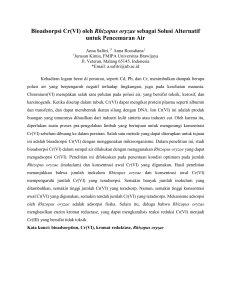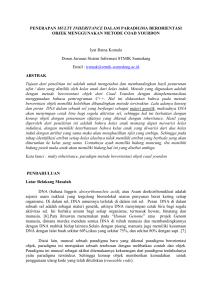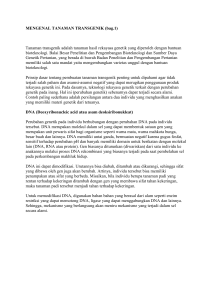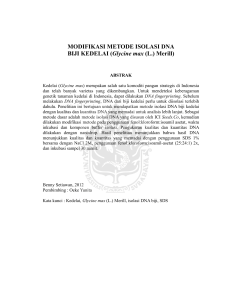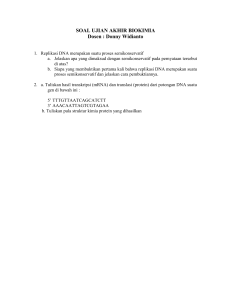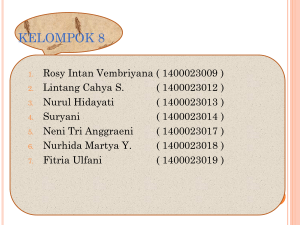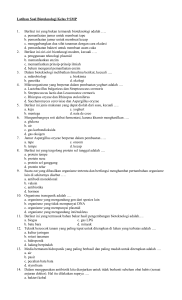transfer dna rhizopus oligosporus ke dalam protoplas rhizopus oryzae
advertisement
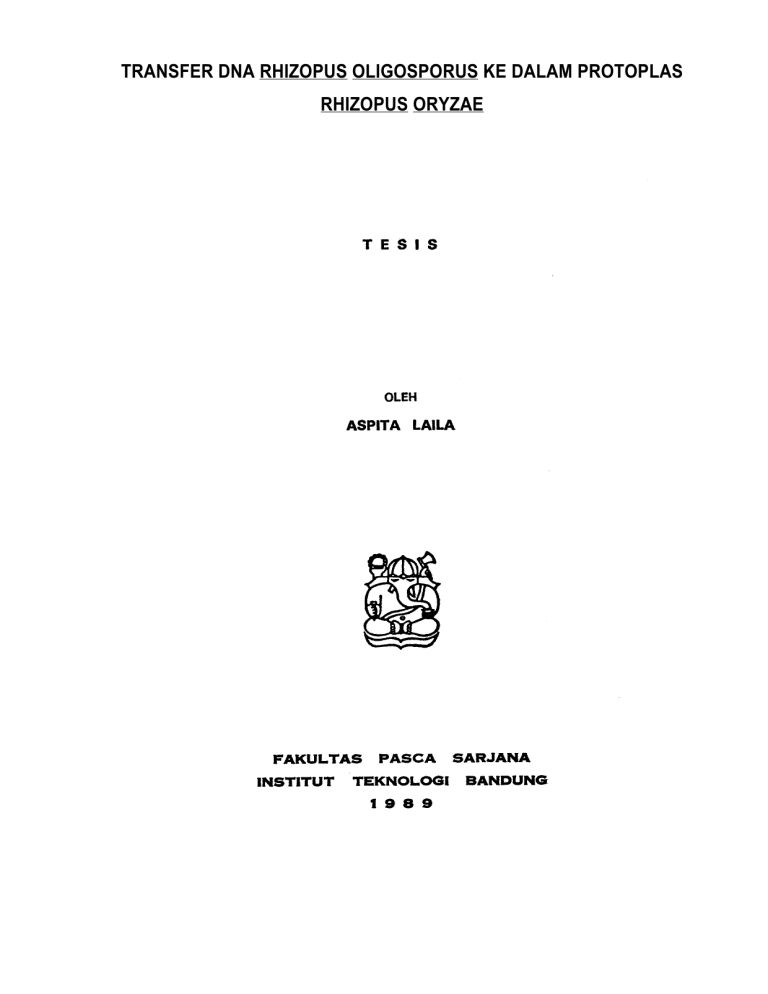
TRANSFER DNA RHIZOPUS OLIGOSPORUS KE DALAM PROTOPLAS RHIZOPUS ORYZAE T 574. 873 282 LAI ABSTRAK Suatu teknik untuk mendapatkan keturunan baru, telah di kembangkan berdasarkan prinsip biologi molekuler dalam rekayasa genetika, seperti metoda DNA, fusi protoplas dan trans-formasi DNA. Ketiga metoda tersebut diatas telah dikembangkan akhir- akhir ini. Teknik transformasi khiaopus orzae telah dari berhasil DNA Rhiaopus dilakukan dalam oligosporus penelitian ke ini. Untuk isolasi DNA Rhtzopus oligosporus digunakan enzim lisozim dari metoda Birnboim dan Marmur yang telah dimodrfikasi. Isolat DNA murni ini ditransformasikan kedalam protoplas Phizo p u s oryzae dengan menggunakan poli etilen glikol (PEG) sebagai zat penginduksi. Supaya diperoleh hasil yang lebih teliti, pengujian dilakukan terhadap kemampuan menghidrolisis protein, amilum dan lipolitik antibiotik dari hasil dilakukan transformasi dengan kapang. menggunakan Pada Bacillus pengujian, substilis sebagai bakteri penguji. Hasil penelitian ini memperlihatkan, juga bahwa ada perbedaan morfologi antara induk dan turunannya. iii Abstract A new technique for achieving new heritable material, has been developed based on moleculer biological principles in genetica engeneering, such as the technique for the iosolation of DNA, the fussion of protoplast and transformation of DNA. All techniques, listed above has currently been developed. The technique of transformation of DNA from Rhizopus oligosporus into Rhizopus oryzae was carried out successfully in the investigation. For DNA isolation of Rhizopus oligos porus, a modificated method of Birnboim and Marmur was used. Pure isolated DNA was transformed into protoplast of Rhizopus Oryzae using poly results, tests were ethylene glycol (PEG) as inducers. In order to obtain more accurate carried out based on the capability to hydrolyses of. protein, amylum and lipid from the fungi trasformant. The test for anti biotic production was carried out using $aciLLus substilis. The investigations also reveals that the morphology parental and the transformant are different. iv of the
